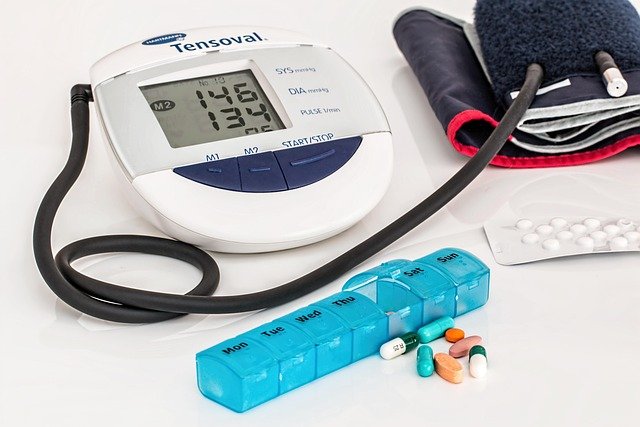Heart Failure Treatment: Understanding the Warning Signs and Modern Approaches
Heart failure affects millions worldwide, yet many people miss its early warning signs, attributing them to aging or other conditions. This chronic, progressive condition occurs when the heart muscle can't pump blood effectively to meet the body's needs. While heart failure sounds alarming, modern medicine offers numerous effective treatments that can significantly improve quality of life and longevity when the condition is identified early.

When Your Heart Whispers: Subtle Signs You Shouldn’t Ignore
The early symptoms of heart failure often manifest quietly, making them easy to dismiss. Unusual fatigue that doesn’t improve with rest might be your heart whispering that it’s struggling. You might notice decreased exercise tolerance—activities that were once easy become challenging. Subtle swelling in your ankles, feet, or legs, especially at the end of the day, occurs as fluid accumulates when your heart isn’t efficiently pumping blood. Another whisper is unexplained weight gain from fluid retention, often 2-3 pounds over a few days without dietary changes. These symptoms might seem unrelated to your heart, which is precisely why they’re frequently overlooked until the condition progresses.
When the Night Feels Restless: Hidden Symptoms of Heart Failure
Nighttime offers revealing clues about heart health that many people misattribute to other causes. Nocturnal dyspnea—waking up breathless—happens when fluid redistributes in your body while lying down. Some patients describe needing to sleep propped up on multiple pillows (orthopnea) to breathe comfortably. Paroxysmal nocturnal dyspnea—waking suddenly gasping for air—results from fluid accumulation in lung tissues. Frequent nighttime urination may indicate your heart is working more efficiently when you’re resting horizontally, allowing better kidney perfusion. Sleep apnea and heart failure often coexist, each worsening the other. These nighttime disruptions significantly impact quality of life but respond well to proper heart failure treatment.
When Every Beat Matters: Spotting Hidden Heart Symptoms
Some heart failure symptoms are more subtle but equally important clinical indicators. Persistent coughing or wheezing, particularly when lying down, may indicate fluid accumulation in the lungs. Decreased mental alertness or confusion can result from reduced oxygen to the brain. A rapid or irregular heartbeat—your heart attempting to compensate for reduced pumping efficiency—warrants immediate medical attention. Loss of appetite or nausea occurs as blood diverts from digestive organs to more vital systems. Perhaps most telling is a feeling of heaviness, pressure, or discomfort in the chest that doesn’t necessarily present as acute pain but rather a persistent sensation that something isn’t right.
Modern Approaches to Heart Failure Treatment
Treatment strategies for heart failure have evolved significantly, focusing on symptom management, slowing disease progression, and improving quality of life. Medication remains the cornerstone of therapy, with several drug classes showing proven benefits. ACE inhibitors and ARBs reduce strain on the heart by relaxing blood vessels. Beta-blockers slow heart rate and reduce blood pressure, decreasing cardiac workload. Newer medications like SGLT2 inhibitors, originally developed for diabetes, have shown remarkable benefits in heart failure patients regardless of diabetic status. Aldosterone antagonists help manage fluid retention, while diuretics reduce congestion symptoms by eliminating excess fluid.
Advanced Therapies for Progressive Heart Failure
When medications alone prove insufficient, advanced therapies offer additional options. Device therapies include implantable cardioverter-defibrillators (ICDs) that correct dangerous arrhythmias, and cardiac resynchronization therapy (CRT) devices that coordinate contractions in an inefficiently beating heart. For select patients, mechanical circulatory support devices like left ventricular assist devices (LVADs) can dramatically improve quality of life. These devices, once considered bridges to transplantation, increasingly serve as destination therapy for patients ineligible for transplant. Heart transplantation remains the gold standard treatment for end-stage heart failure, though limited donor availability restricts its application. Emerging regenerative therapies using stem cells show promise in restoring damaged heart tissue, though many remain investigational.
The Role of Lifestyle in Heart Failure Management
While medications and devices are crucial, lifestyle modifications significantly impact heart failure outcomes. Sodium restriction helps prevent fluid retention, with most guidelines recommending limiting intake to 2-3 grams daily. Fluid restriction of 1.5-2 liters per day may be necessary for advanced cases. Regular physical activity, contrary to outdated beliefs about rest, improves exercise tolerance and quality of life. Cardiac rehabilitation programs provide supervised exercise regimens tailored to individual capabilities. Weight management reduces cardiac workload, while smoking cessation immediately improves heart function. Alcohol limitation is essential, as even moderate consumption can worsen heart failure. Perhaps most importantly, daily monitoring of weight and symptoms allows for early intervention when changes occur.
Understanding and responding to heart failure’s subtle signs enables earlier intervention, improving outcomes and quality of life. Modern treatment approaches combine evidence-based medications, advanced devices, and lifestyle modifications to effectively manage this complex condition. With proper care and vigilance regarding symptoms, many heart failure patients lead full, active lives for years after diagnosis.
This article is for informational purposes only and should not be considered medical advice. Please consult a qualified healthcare professional for personalized guidance and treatment.




